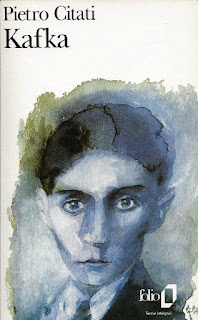Nobel prizes in literature: Olga Tokarczuk and Peter Handke
https://www.economist.com/prospero/2019/10/10/nobel-prizes-in-literature-olga-tokarczuk-and-peter-handke
Nobel prizes in literature: Olga Tokarczuk and Peter Handke
The Swedish Academy’s decision to crown two European authors will delight and enrage readers around the world
Books, arts and culture
Prospero
Prospero
IT
WAS A SPECIAL edition of the Nobel prize in literature. Following the
suspension of the award last year in the wake of a sexual-abuse scandal,
on October 10th the Swedish Academy announced the winners of both the
2018 and 2019 medals. From shortlists of eight writers, they chose to
crown Olga Tokarczuk, a Polish novelist, and Peter Handke, an Austrian
playwright, scriptwriter and memoirist. Each writer will receive SKr9m
($907,000), a medal and a diploma.
Earlier
this month, Anders Olsson, chair of the Nobel prize in literature
committee, had said that formerly the jurors “had a more Eurocentric
perspective on literature,” but that now they “are looking all over the
world”. So the triumph of two authors from Europe, which accounts for
just 11% of the world’s population but three-quarters of the laureates
since the Nobel prize was founded in 1901, will surprise those who had
hoped the Academy might use its year of reflection to broaden its scope
and acknowledge a writer from farther afield. Early favourites were
Maryse Conde, the empress of Caribbean literature; the celebrated Kenyan
novelist, Ngugi wa Thiong’o; and Haruki Murakami from Japan.
Ms
Tokarczuk, whose books have been lyrically translated into English by
Jennifer Croft and Antonia Lloyd-Jones, was lauded for her “narrative
imagination that with encyclopedic passion represents the crossing of
boundaries as a form of life”. In 2018 she won the Man Booker
International prize for “Flights”, a literary dreamscape that focused on
travel, history and jetlag. Earlier this year her crowning work, “The
Books of Jacob”, translated by Maryla Laurent, was awarded the Prix
Laure-Bataillon for the best foreign-language book translated into
French in the past year. It will be published in English in 2020.
Although
Ms Tokarczuk’s work has found a wide readership in Britain and America,
she has proved a thorn in the side of right-wing patriots in Poland who
object to her saying that the country’s leadership committed
“horrendous acts” of colonisation in the past, particularly of peoples
in large territories to the east of present-day Poland, such as Ukraine.
In 2014 her Polish publisher was forced to hire bodyguards to protect
her after she was described as targowiczanin—an ancient Polish word for traitor.
Yet
it is Mr Handke who is the more controversial of the two laureates. He
has long been recognised as one of the finest living writers in German
and was praised by the committee for “an influential work that with
linguistic ingenuity has explored the periphery and the specificity of
human experience”. He is best known beyond the German-speaking world for
his screenplay for Wim Wenders’s film, “Wings of Desire” (1987), a
romantic fantasy in which an angel gliding over Berlin falls in love
with a lonely trapeze artist. “A Sorrow Beyond Dreams”, Mr Handke’s
memoir of his mother’s experiences as a young woman in an Austrian
village under Nazi occupation, and her subsequent suicide, will be
reissued in Britain next month by Pushkin Press.
Mr
Handke’s Slovene roots on his maternal side led to an early interest in
Yugoslavia. He became a long-standing supporter of the Serbian leader
and war criminal, Slobodan Milosevic, and spoke at his funeral in 2006.
In his eulogy he said: “I don’t know the truth. But I look. I listen. I
feel. I remember. This is why I am here today, close to Yugoslvia, close
to Serbia, close to Slobodan Milosevic.” Members of the public
protested against Mr Handke’s receipt of the International Ibsen Award
in 2014. After the announcement of the Nobel prize, Vlora Citaku, the
Kosovan ambassador to the United States, described it as
“scandalous…preposterous and a shameful decision”.
Perhaps
the Nobel committee made a conscious decision to pair these two
European writers together. Although they have very different literary
approaches and writing styles, they are both concerned with contested
lands, about who owns memory and about the central human need to tell
stories.

Comments
Post a Comment